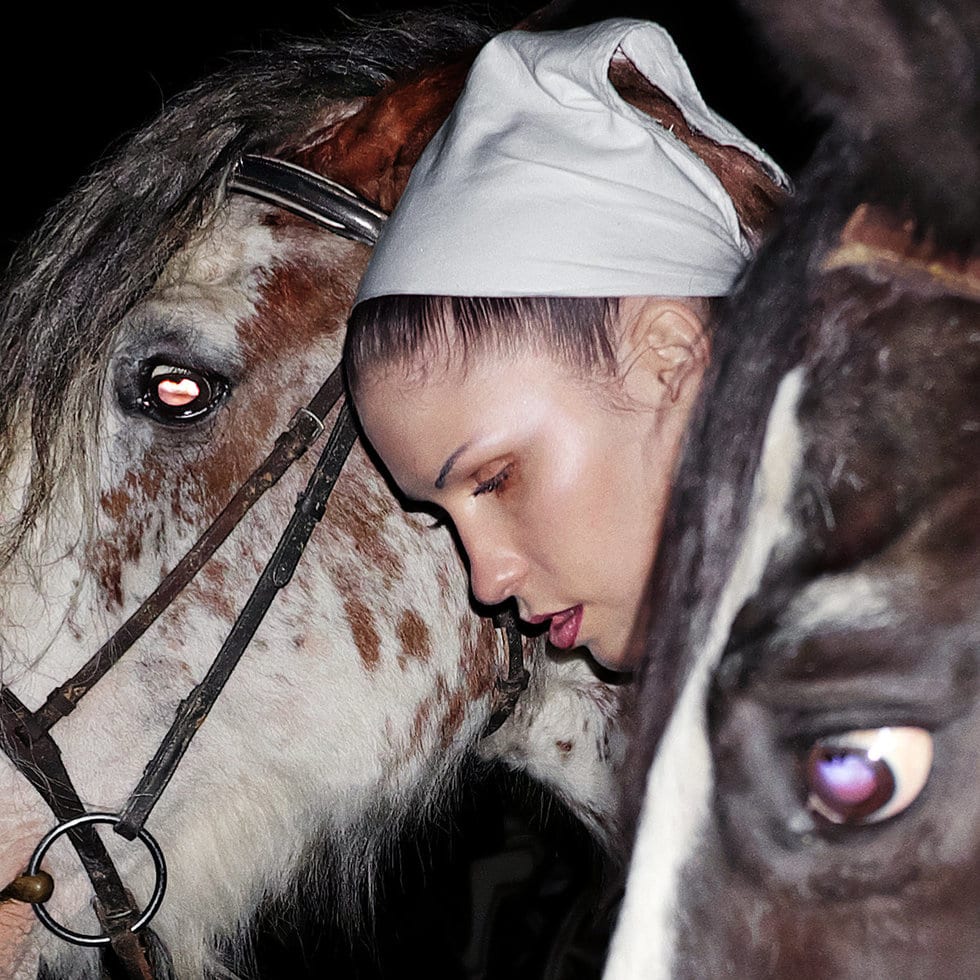
Alexandra Drewchin was introduced to the experimental music scene through her collaborations with the intriguing experimental, psychedelic outfit Guardian Alien. Having participated in records such as See the World Given to a One Love Entity and Spiritual Emergency, it became clear that it was just a matter of time for her to venture on her own. Soon enough Eartheater, Drewchin’s project, came to be and focused on the experimental edge of electronic and forward thinking art pop.
Eartheater‘s debut album first presented Drewchin’s take on electronic structures. RIP Chrysalis was a bold offering, revealing an adventurous attitude towards structure and song progression. That approach would only intensify with Metalypsis, which moved further into the abstract territory, implementing drone music aesthetics and bending further the principles of electronic music when it comes to rhythm and groove. IRISIRI however sees Drewchin take a slight step back with her investigations, allowing the underlying themes of her music to take a solid form and transcend their previously abstract state.
Eartheater’s expansive scope of genre molding still prevails. Using a collage of sounds technique, Drewchin has produced an act that is hard to categorize. Electronic compositions meet noise injections, while her chameleonic vocal delivery enhances classical renditions. The classical influence is apparent in various parts of the record, starting from the harp playing in “Peripheral” and the main theme of “Inclined”. Both are contradicted by the electronic background and the processed vocals, delivering striking moments of elegant composition. This dichotomy between electronica and classical music is something that defines the music of Eartheater, which at the same time takes inspiration from the past while looking to the future, coalescing the two in bringing forth this amalgam of styles and sounds.
The richness of samples and the industrial perspective, both are able to elevate the record to further heights. Offering a sonic tapestry of sounds in “Not Worried”, Drewchin delivers an operatic performance, which enhances the ethereal element of this work. Her vocal delivery is able to act as the constant attribute against the always changing sonic landscapes of Eartheater. “Inking” for example sees the electronic compositions acquire elements of industrial music, which coupled with the vocals brings a sorrowful perspective forward. There appears to be this central theme of balancing between the mechanical, depicted by the electronic influence, and the humane, represented by Drewchin’s vocals and the classical leanings. And it is these two sides that propel the work forward and make it so appealing.
It is also the ability of Drewchin to create this open environment when she can plug in further elements. A touch of black metal appears in “C.L.I.T.”, taking on the strong ambiance and sickening vibe of the genre. The main melody carries on the aesthetics of the genre, while the vocals also make an entrance with a more raging and despairing tone. On the other hand, the presence of Moor Mother as a guest in the exquisite “MMXXX” sees the noise becoming the focal point of the track, making it easily one of the highlights of the record.
But apart from Drewchin compositional prowess and experimental tendencies, there are two main factors that make IRISIRI such an enticing record. Firstly, there is no unexplored territory in her music. Despite the short duration of the tracks, the dive that Eartheater perform is substantial and covers a lot of ground across various genres. But most importantly, there always appears to be a certain playfulness when it comes to the progression and use of samples. That is not something that suggests this is an easy listening record, but it makes the album more personal and adventurous, and it is its most striking part.


![Call for Papers: All Things Reconsidered [MUSIC] May-August 2024](https://www.popmatters.com/wp-content/uploads/2024/04/all-things-reconsidered-call-music-may-2024-720x380.jpg)



